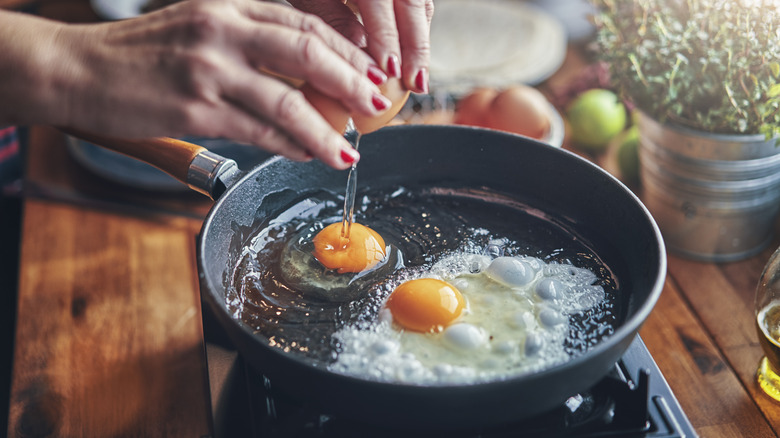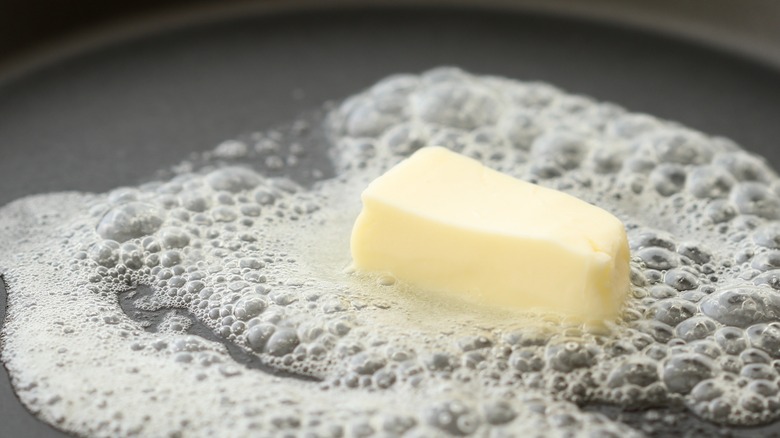The Absolute Best Fat To Cook Your Eggs In
More than with most foods, cooking eggs is a matter of personal preference, but that doesn't mean there aren't some advantages to different fats and ingredients. Everyone has their favorite way to cook eggs, and with some preparations you might have further preferences, like fluffy scrambled eggs vs. creamy or milk vs. no milk, where there's really no right answer. The one thing you do have to do, however, is pick what kind of fat you are cooking your eggs in. Fried, over-easy, or whatever, all eggs are going to need a little boost in flavor and help not sticking to the pan. So Tasting Table reached out to an expert, Ronnie Ruffalo, the co-owner & chef at Chicago brunch destination Disco Pancake, to ask what the best fat to cook your eggs in is.
Ruffalo was clear and definitive, telling us, "Butter, always butter." In explaining why butter is the go-to over other options like oil, Ruffalo pointed to the extra effect it has beyond helping the eggs not stick, saying, "Butter adds rich flavor and enhances the taste." The decadent creaminess of butter just doesn't have a match for adding to the taste of eggs, which is important considering how mild eggs can be by themselves. It's not the only good option, olive oil can certainly bring some nice fruity or peppery notes to eggs, but if you want to make your eggs the absolute best they can be, there is no substitute for butter.
Butter improves the taste and texture of eggs like no other cooking fat
Beyond the high levels of fat in butter, the specific taste of butter just pairs well with eggs compared to other options. The rich milkfat that you find in butter is closer to the fatty flavor you get from egg yolks, which means butter is a complementary ingredient that makes eggs just taste more eggy, instead of adding more vegetal or nutty notes like cooking oils will. The one place you may want to opt for oil over butter is if you are trying to get a highly browned crust on fried eggs, since other cooking fats like olive oil have a higher smoke point than butter. But since eggs are pretty delicate, you don't need a ripping hot temperature to cook them through, so butter can get the job done even with those styles.
Butter isn't just useful for melting in the pan either. Fat helps eggs stay more tender by preventing egg proteins from constricting too much when heated. Incorporating some small squares of butter directly into scrambled eggs will help them stay moist as the butter melts and incorporates into the beaten eggs. The butter will also flavor the eggs all the way through, instead of just the parts that are in contact with the pan, while also keeping their temperature lower and preventing them from overcooking. From taste to texture to moisture, butter is your all-purpose tool for the best eggs you'll ever make.

